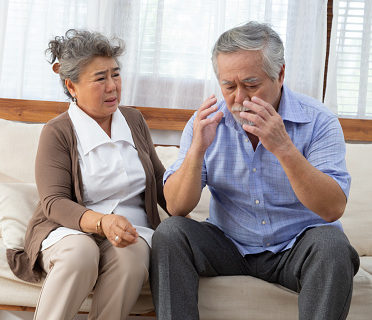What You Should Know About Stroke

Did you know that stroke causes more serious long-term disabilities than any other disease? Each year in the United States, there are more than 795,000 strokes. With stroke being so devastating and so common, learning about it can help you act in time to save a co-worker, friend, or relative.
Nearly three-quarters of all strokes occur in people over the age of 65, and the risk of having a stroke more than doubles each decade after the age of 55.
For African Americans, stroke is more common and more deadly—even in young and middle-aged adults—than for any ethnic or other racial group in the United States.
Time is critical
New treatments are available that greatly reduce the damage caused by a stroke. But you need to arrive at the hospital within 60 minutes after symptoms start to prevent disability. Knowing stroke symptoms, calling 911 immediately, and getting to a hospital are critical.
What is a stroke?
A stroke is serious—just like a heart attack. It’s sometimes called a “brain attack.” Most often, stroke occurs when blood flow to the brain stops because it is blocked by a clot. The brain cells in the immediate area begin to die because they stop getting the oxygen and nutrients they need to function.
What causes a stroke?
There are two kinds of stroke. The most common kind of stroke, called ischemic stroke, is caused by a blood clot that blocks or plugs a blood vessel in the brain. The other kind of stroke, called hemorrhagic stroke, is caused by a blood vessel that breaks and bleeds into the brain.
What disabilities can result from a stroke?
Stroke damage in the brain can affect the entire body, resulting in mild to severe disabilities. These include paralysis, problems with thinking, problems with speaking, and emotional problems.
Stroke symptoms
- Sudden numbness or weakness of the face, arm, or leg (especially on one side of the body)
- Sudden confusion, trouble speaking or understanding speech
- Sudden trouble seeing in one or both eyes
- Sudden trouble walking, dizziness, loss of balance or coordination
- Sudden severe headache with no known cause
Because stroke injures the brain, you may not realize that you are having a stroke. The people around you might not know it either. Your family, friends, or neighbors may think you are confused.
Call 911 immediately
Don’t wait for the symptoms to improve or worsen. If you believe you are having a stroke, or someone you know is having a stroke, call 911 immediately. If you’re having a stroke you may not be able to call 911 on your own, so be sure to get help immediately.
Calling for medical help can make the difference in avoiding a lifelong disability.
Source: National Institutes of Health
![Charlesgate [logo]](https://www.charlesgate.net/wp-content/uploads/sites/218/2016/12/logo-new.png)